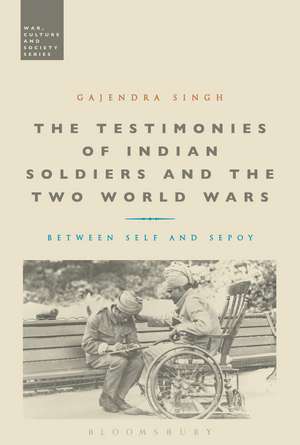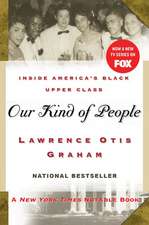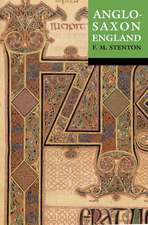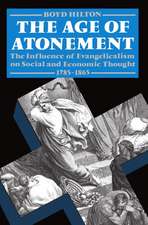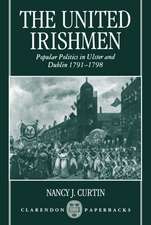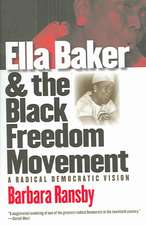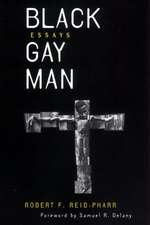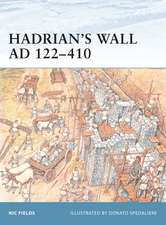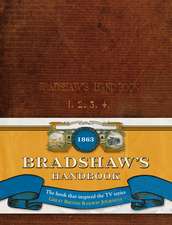The Testimonies of Indian Soldiers and the Two World Wars: Between Self and Sepoy: War, Culture and Society
Autor Dr Gajendra Singhen Limba Engleză Paperback – 29 iul 2015
| Toate formatele și edițiile | Preț | Express |
|---|---|---|
| Paperback (1) | 258.89 lei 6-8 săpt. | |
| Bloomsbury Publishing – 29 iul 2015 | 258.89 lei 6-8 săpt. | |
| Hardback (1) | 775.43 lei 6-8 săpt. | |
| Bloomsbury Publishing – 15 ian 2014 | 775.43 lei 6-8 săpt. |
Din seria War, Culture and Society
- 22%
 Preț: 231.06 lei
Preț: 231.06 lei - 22%
 Preț: 237.93 lei
Preț: 237.93 lei - 13%
 Preț: 258.15 lei
Preț: 258.15 lei -
 Preț: 258.42 lei
Preț: 258.42 lei - 22%
 Preț: 257.59 lei
Preț: 257.59 lei - 22%
 Preț: 237.28 lei
Preț: 237.28 lei - 13%
 Preț: 257.12 lei
Preț: 257.12 lei - 23%
 Preț: 229.41 lei
Preț: 229.41 lei - 21%
 Preț: 217.09 lei
Preț: 217.09 lei - 13%
 Preț: 259.25 lei
Preț: 259.25 lei - 23%
 Preț: 197.34 lei
Preț: 197.34 lei - 23%
 Preț: 192.10 lei
Preț: 192.10 lei - 19%
 Preț: 530.87 lei
Preț: 530.87 lei - 30%
 Preț: 509.52 lei
Preț: 509.52 lei - 14%
 Preț: 509.52 lei
Preț: 509.52 lei
Preț: 258.89 lei
Preț vechi: 296.10 lei
-13% Nou
Puncte Express: 388
Preț estimativ în valută:
49.54€ • 51.85$ • 41.23£
49.54€ • 51.85$ • 41.23£
Carte tipărită la comandă
Livrare economică 31 martie-14 aprilie
Preluare comenzi: 021 569.72.76
Specificații
ISBN-13: 9781474247870
ISBN-10: 1474247873
Pagini: 312
Ilustrații: 5 bw illus
Dimensiuni: 156 x 234 x 16 mm
Greutate: 0.43 kg
Editura: Bloomsbury Publishing
Colecția Bloomsbury Academic
Seria War, Culture and Society
Locul publicării:London, United Kingdom
ISBN-10: 1474247873
Pagini: 312
Ilustrații: 5 bw illus
Dimensiuni: 156 x 234 x 16 mm
Greutate: 0.43 kg
Editura: Bloomsbury Publishing
Colecția Bloomsbury Academic
Seria War, Culture and Society
Locul publicării:London, United Kingdom
Caracteristici
Analyses new and little-used source material, including censored military correspondence from the two World Wars
Notă biografică
Gajendra Singh is AHRC Early Career Fellow at the University of Oxford, UK, and Visiting Research Fellow in the Department of Defence Studies at King's College London, UK.
Cuprins
Introduction1. In Search of Colonial Negatives: Martial Race Theories, Recruiting Handbooks, and the Indian Army2. 'More Like Brothers and Fathers to the Sepoys': Welfare, Discipline and Censorship in the Army3. The Perils of 'Oriental Correspondence': Living the Space of Conditioned Testimony4. Throwing Snowballs in France: (Re-) Writing a Letter and (Re-) Appraising Islam, 1915-19185. Mutiny, Fabricating Court Testimony and Hiding in the Latrine: The 5th Light Infantry in Singapore6. 'Breaking the Chains with Which We Were Bound': The Interrogation Chamber, The Indian National Army and the Negation of Military Identities, 1941-1947Conclusion: Reading Rebels, Writing GhostsBibliographyIndex
Recenzii
The book is a breakthrough in the historiography of Indian armed forces, for its tone, approach, methodology and contents are unique. The author deserves praise for his innovative reading of the sources, and with this book he has successfully filled a long-standing gap in the historiography of the Indian armed forces.
Gajender Singh's is an invaluable work of military history ... A 'must-read' for those interested in military history, the history of the British Empire and for those interested in the transnational frames of Indian identities ... The Testimonies of Indian Soldiers and the Two World Wars is a wonderful achievement.
Singh's brave attempt to uncover the thinking patterns of the jawans has been successful to a great extent . . . Between Self and Sepoy succeeds in opening up a new vista as regards the mental outlook of the Indian colonial soldiery.
Singh deserves credit as his book is among the few pioneering works on the Indian sipahi, the most vulnerable victim of the brutal wars.
An important addition in the study of the colonial Indian armed forces since it goes beyond the usual colonial archives to capture and decipher often unheard voices in military history. . Singh deserves compliments for this very interesting book.
Gajender Singh's is an invaluable work of military history ... A 'must-read' for those interested in military history, the history of the British Empire and for those interested in the transnational frames of Indian identities ... The Testimonies of Indian Soldiers and the Two World Wars is a wonderful achievement.
Singh's brave attempt to uncover the thinking patterns of the jawans has been successful to a great extent . . . Between Self and Sepoy succeeds in opening up a new vista as regards the mental outlook of the Indian colonial soldiery.
Singh deserves credit as his book is among the few pioneering works on the Indian sipahi, the most vulnerable victim of the brutal wars.
An important addition in the study of the colonial Indian armed forces since it goes beyond the usual colonial archives to capture and decipher often unheard voices in military history. . Singh deserves compliments for this very interesting book.
